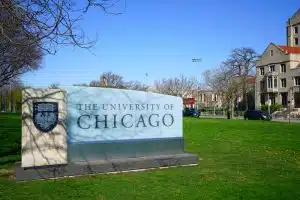*** Enter the $2,000 College Transitions No Essay Scholarship Contest ***

How to Write the Community Essay – Guide with Examples (2023-24)
September 6, 2023
Students applying to college this year will inevitably confront the community essay. In fact, most students will end up responding to several community essay prompts for different schools. For this reason, you should know more than simply how to approach the community essay as a genre. Rather, you will want to learn how to decipher the nuances of each particular prompt, in order to adapt your response appropriately. In this article, we’ll show you how to do just that, through several community essay examples. These examples will also demonstrate how to avoid cliché and make the community essay authentically and convincingly your own.
Emphasis on Community
Do keep in mind that inherent in the word “community” is the idea of multiple people. The personal statement already provides you with a chance to tell the college admissions committee about yourself as an individual. The community essay, however, suggests that you depict yourself among others. You can use this opportunity to your advantage by showing off interpersonal skills, for example. Or, perhaps you wish to relate a moment that forged important relationships. This in turn will indicate what kind of connections you’ll make in the classroom with college peers and professors.
Apart from comprising numerous people, a community can appear in many shapes and sizes. It could be as small as a volleyball team, or as large as a diaspora. It could fill a town soup kitchen, or spread across five boroughs. In fact, due to the internet, certain communities today don’t even require a physical place to congregate. Communities can form around a shared identity, shared place, shared hobby, shared ideology, or shared call to action. They can even arise due to a shared yet unforeseen circumstance.
What is the Community Essay All About?
In a nutshell, the community essay should exhibit three things:
- An aspect of yourself, 2. in the context of a community you belonged to, and 3. how this experience may shape your contribution to the community you’ll join in college.
It may look like a fairly simple equation: 1 + 2 = 3. However, each college will word their community essay prompt differently, so it’s important to look out for additional variables. One college may use the community essay as a way to glimpse your core values. Another may use the essay to understand how you would add to diversity on campus. Some may let you decide in which direction to take it—and there are many ways to go!
To get a better idea of how the prompts differ, let’s take a look at some real community essay prompts from the current admission cycle.
Sample 2023-2024 Community Essay Prompts
1) brown university.
“Students entering Brown often find that making their home on College Hill naturally invites reflection on where they came from. Share how an aspect of your growing up has inspired or challenged you, and what unique contributions this might allow you to make to the Brown community. (200-250 words)”
A close reading of this prompt shows that Brown puts particular emphasis on place. They do this by using the words “home,” “College Hill,” and “where they came from.” Thus, Brown invites writers to think about community through the prism of place. They also emphasize the idea of personal growth or change, through the words “inspired or challenged you.” Therefore, Brown wishes to see how the place you grew up in has affected you. And, they want to know how you in turn will affect their college community.
“NYU was founded on the belief that a student’s identity should not dictate the ability for them to access higher education. That sense of opportunity for all students, of all backgrounds, remains a part of who we are today and a critical part of what makes us a world-class university. Our community embraces diversity, in all its forms, as a cornerstone of the NYU experience.
We would like to better understand how your experiences would help us to shape and grow our diverse community. Please respond in 250 words or less.”
Here, NYU places an emphasis on students’ “identity,” “backgrounds,” and “diversity,” rather than any physical place. (For some students, place may be tied up in those ideas.) Furthermore, while NYU doesn’t ask specifically how identity has changed the essay writer, they do ask about your “experience.” Take this to mean that you can still recount a specific moment, or several moments, that work to portray your particular background. You should also try to link your story with NYU’s values of inclusivity and opportunity.
3) University of Washington
“Our families and communities often define us and our individual worlds. Community might refer to your cultural group, extended family, religious group, neighborhood or school, sports team or club, co-workers, etc. Describe the world you come from and how you, as a product of it, might add to the diversity of the UW. (300 words max) Tip: Keep in mind that the UW strives to create a community of students richly diverse in cultural backgrounds, experiences, values and viewpoints.”
UW ’s community essay prompt may look the most approachable, for they help define the idea of community. You’ll notice that most of their examples (“families,” “cultural group, extended family, religious group, neighborhood”…) place an emphasis on people. This may clue you in on their desire to see the relationships you’ve made. At the same time, UW uses the words “individual” and “richly diverse.” They, like NYU, wish to see how you fit in and stand out, in order to boost campus diversity.
Writing Your First Community Essay
Begin by picking which community essay you’ll write first. (For practical reasons, you’ll probably want to go with whichever one is due earliest.) Spend time doing a close reading of the prompt, as we’ve done above. Underline key words. Try to interpret exactly what the prompt is asking through these keywords.
Next, brainstorm. I recommend doing this on a blank piece of paper with a pencil. Across the top, make a row of headings. These might be the communities you’re a part of, or the components that make up your identity. Then, jot down descriptive words underneath in each column—whatever comes to you. These words may invoke people and experiences you had with them, feelings, moments of growth, lessons learned, values developed, etc. Now, narrow in on the idea that offers the richest material and that corresponds fully with the prompt.
Lastly, write! You’ll definitely want to describe real moments, in vivid detail. This will keep your essay original, and help you avoid cliché. However, you’ll need to summarize the experience and answer the prompt succinctly, so don’t stray too far into storytelling mode.
How To Adapt Your Community Essay
Once your first essay is complete, you’ll need to adapt it to the other colleges involving community essays on your list. Again, you’ll want to turn to the prompt for a close reading, and recognize what makes this prompt different from the last. For example, let’s say you’ve written your essay for UW about belonging to your swim team, and how the sports dynamics shaped you. Adapting that essay to Brown’s prompt could involve more of a focus on place. You may ask yourself, how was my swim team in Alaska different than the swim teams we competed against in other states?
Once you’ve adapted the content, you’ll also want to adapt the wording to mimic the prompt. For example, let’s say your UW essay states, “Thinking back to my years in the pool…” As you adapt this essay to Brown’s prompt, you may notice that Brown uses the word “reflection.” Therefore, you might change this sentence to “Reflecting back on my years in the pool…” While this change is minute, it cleverly signals to the reader that you’ve paid attention to the prompt, and are giving that school your full attention.
What to Avoid When Writing the Community Essay
- Avoid cliché. Some students worry that their idea is cliché, or worse, that their background or identity is cliché. However, what makes an essay cliché is not the content, but the way the content is conveyed. This is where your voice and your descriptions become essential.
- Avoid giving too many examples. Stick to one community, and one or two anecdotes arising from that community that allow you to answer the prompt fully.
- Don’t exaggerate or twist facts. Sometimes students feel they must make themselves sound more “diverse” than they feel they are. Luckily, diversity is not a feeling. Likewise, diversity does not simply refer to one’s heritage. If the prompt is asking about your identity or background, you can show the originality of your experiences through your actions and your thinking.
Community Essay Examples and Analysis
Brown university community essay example.
I used to hate the NYC subway. I’ve taken it since I was six, going up and down Manhattan, to and from school. By high school, it was a daily nightmare. Spending so much time underground, underneath fluorescent lighting, squashed inside a rickety, rocking train car among strangers, some of whom wanted to talk about conspiracy theories, others who had bedbugs or B.O., or who manspread across two seats, or bickered—it wore me out. The challenge of going anywhere seemed absurd. I dreaded the claustrophobia and disgruntlement.
Yet the subway also inspired my understanding of community. I will never forget the morning I saw a man, several seats away, slide out of his seat and hit the floor. The thump shocked everyone to attention. What we noticed: he appeared drunk, possibly homeless. I was digesting this when a second man got up and, through a sort of awkward embrace, heaved the first man back into his seat. The rest of us had stuck to subway social codes: don’t step out of line. Yet this second man’s silent actions spoke loudly. They said, “I care.”
That day I realized I belong to a group of strangers. What holds us together is our transience, our vulnerabilities, and a willingness to assist. This community is not perfect but one in motion, a perpetual work-in-progress. Now I make it my aim to hold others up. I plan to contribute to the Brown community by helping fellow students and strangers in moments of precariousness.
Brown University Community Essay Example Analysis
Here the student finds an original way to write about where they come from. The subway is not their home, yet it remains integral to ideas of belonging. The student shows how a community can be built between strangers, in their responsibility toward each other. The student succeeds at incorporating key words from the prompt (“challenge,” “inspired” “Brown community,” “contribute”) into their community essay.
UW Community Essay Example
I grew up in Hawaii, a world bound by water and rich in diversity. In school we learned that this sacred land was invaded, first by Captain Cook, then by missionaries, whalers, traders, plantation owners, and the U.S. government. My parents became part of this problematic takeover when they moved here in the 90s. The first community we knew was our church congregation. At the beginning of mass, we shook hands with our neighbors. We held hands again when we sang the Lord’s Prayer. I didn’t realize our church wasn’t “normal” until our diocese was informed that we had to stop dancing hula and singing Hawaiian hymns. The order came from the Pope himself.
Eventually, I lost faith in God and organized institutions. I thought the banning of hula—an ancient and pure form of expression—seemed medieval, ignorant, and unfair, given that the Hawaiian religion had already been stamped out. I felt a lack of community and a distrust for any place in which I might find one. As a postcolonial inhabitant, I could never belong to the Hawaiian culture, no matter how much I valued it. Then, I was shocked to learn that Queen Ka’ahumanu herself had eliminated the Kapu system, a strict code of conduct in which women were inferior to men. Next went the Hawaiian religion. Queen Ka’ahumanu burned all the temples before turning to Christianity, hoping this religion would offer better opportunities for her people.
Community Essay (Continued)
I’m not sure what to make of this history. Should I view Queen Ka’ahumanu as a feminist hero, or another failure in her islands’ tragedy? Nothing is black and white about her story, but she did what she thought was beneficial to her people, regardless of tradition. From her story, I’ve learned to accept complexity. I can disagree with institutionalized religion while still believing in my neighbors. I am a product of this place and their presence. At UW, I plan to add to campus diversity through my experience, knowing that diversity comes with contradictions and complications, all of which should be approached with an open and informed mind.
UW Community Essay Example Analysis
This student also manages to weave in words from the prompt (“family,” “community,” “world,” “product of it,” “add to the diversity,” etc.). Moreover, the student picks one of the examples of community mentioned in the prompt, (namely, a religious group,) and deepens their answer by addressing the complexity inherent in the community they’ve been involved in. While the student displays an inner turmoil about their identity and participation, they find a way to show how they’d contribute to an open-minded campus through their values and intellectual rigor.
What’s Next
For more on supplemental essays and essay writing guides, check out the following articles:
- How to Write the Why This Major Essay + Example
- How to Write the Overcoming Challenges Essay + Example
- How to Start a College Essay – 12 Techniques and Tips
- College Essay
Kaylen Baker
With a BA in Literary Studies from Middlebury College, an MFA in Fiction from Columbia University, and a Master’s in Translation from Université Paris 8 Vincennes-Saint-Denis, Kaylen has been working with students on their writing for over five years. Previously, Kaylen taught a fiction course for high school students as part of Columbia Artists/Teachers, and served as an English Language Assistant for the French National Department of Education. Kaylen is an experienced writer/translator whose work has been featured in Los Angeles Review, Hybrid, San Francisco Bay Guardian, France Today, and Honolulu Weekly, among others.
- 2-Year Colleges
- ADHD/LD/Autism/Executive Functioning
- Application Strategies
- Best Colleges by Major
- Best Colleges by State
- Big Picture
- Career & Personality Assessment
- College Search/Knowledge
- College Success
- Costs & Financial Aid
- Data Visualizations
- Dental School Admissions
- Extracurricular Activities
- General Knowledge
- Graduate School Admissions
- High School Success
- High Schools
- Homeschool Resources
- Law School Admissions
- Medical School Admissions
- Navigating the Admissions Process
- Online Learning
- Outdoor Adventure
- Private High School Spotlight
- Research Programs
- Summer Program Spotlight
- Summer Programs
- Teacher Tools
- Test Prep Provider Spotlight
“Innovative and invaluable…use this book as your college lifeline.”
— Lynn O'Shaughnessy
Nationally Recognized College Expert
$2,000 No Essay Scholarship
Presented by College Transitions
- Win $2,000 for college • 1 minute or less to enter • No essay required • Open to students and parents in the U.S.
Create your account today and easily enter all future sweepstakes!
Enter to Win $2,000 Today!
- [email protected]
- (650) 338-8226
Cupertino, CA

- Our Philosophy
- Our Results
- News, Media, and Press
- Common Application
- College Application Essay Editing
- Extracurricular Planning
- Academic Guidance
- Summer Programs
- Interview Preparation
Middle School
- Pre-High School Consultation
- Boarding School Admissions
College Admissions
- Academic and Extracurricular Profile Evaluation
- Senior Editor College Application Program
- Summer Program Applications
- Private Consulting Program
- Transfer Admissions
- UC Transfer Admissions
- Ivy League Transfer Admissions
Graduate Admissions
- Graduate School Admissions
- MBA Admissions
Private Tutoring
- SAT/ACT Tutoring
- AP Exam Tutoring
- Olympiad Training
Academic Programs
- Passion Project Program
- Science Research Program
- Humanities Competitions
- Ad Hoc Consulting
- Athletic Recruitment
- National Universities Rankings
- Liberal Arts Colleges Rankings
- Public Schools Rankings
Acceptance Rates
- University Acceptance Rates
- Transfer Acceptance Rates
- Supplemental Essays
- College Admissions Data
- Chances Calculator
- GPA Calculator
National Universities
- College Acceptance Rates
- College Overall Acceptance Rates
- College Regular Acceptance Rates
- College Early Acceptance Rates
- Ivy League Acceptance Rates
- Ivy League Overall Acceptance Rates
- Ivy League Regular Acceptance Rates
- Ivy League Early Acceptance Rates
Public Schools
- Public Schools Acceptance Rates
- Public Schools Overall Acceptance Rates
- Public Schools Regular Acceptance Rates
- Public Schools Early Acceptance Rates
Liberal Arts
- Liberal Arts Colleges Acceptance Rates
- Liberal Arts Colleges Overall Acceptance Rates
- Liberal Arts Colleges Regular Acceptance Rates
- Liberal Arts Colleges Early Acceptance Rates

Writing a College Essay About Community and Examples

By Eric Eng

Writing a college essay about community is a common requirement in the series of essay prompts most colleges include alongside their Common Application. If you’re applying to multiple universities, you’ll notice that many of these essay topics overlap, although the wording is always different.
One main reason for this is that all college admissions committees want to learn the same things about you. They’re all interested in learning more about who you are, what you’re interested in, what goals you have in the future, and why you’ve chosen to apply to this university.
One of these prompts is a college essay about community. While it varies from college to college, the prompt will roughly sound like this:
Tell us a little about a community you consider yourself part of.
Each university will add its own spin or add-on question, but they’re all asking the same thing: what about your background has had a major impact on who you are today?

Here’s an actual example from Brown University to give you some context:
“Tell us about a place or community you call home. How has it shaped your perspective?”
Another example is from the University of Michigan :
“Everyone belongs to many different communities and/or groups defined by (among other things) shared geography, religion, ethnicity, income, cuisine, interest, race, ideology, or intellectual heritage. Choose one of the communities to which you belong, and describe that community and your place within it. ”
From Duke University:
“We seek a talented, engaged student body that embodies the wide range of human experience; we believe that the diversity of our students makes our community stronger. If you’d like to share a perspective you bring or experiences you’ve had to help us understand you better—perhaps related to a community you belong to, your sexual orientation or gender identity, or your family or cultural background—we encourage you to do so. Real people are reading your application, and we want to do our best to understand and appreciate the real people applying.”
At first glance, this college essay about community seems pretty easy. The question in itself is short and colleges typically only request a brief answer of a few hundred words. However, after you read the prompt a few more times, you might realize how open-ended it is. What are the best words to describe community ?
How you answer this question depends on your perspective. You might choose to describe the literal community where you live, or you could interpret it more metaphorically to mean a group of people you identify with for a specific reason.

For example, if you are a person of color, your community could be your cultural group. In some diversity essay examples , focusing on the sense of belonging in a foreign country could be an ideal angle to explore. If you are an international student , you might share how you found your community in a new country. Alternatively, you could see your weekly Dungeons & Dragons group in writing your college essay about community. Think about the groups or environments where you feel a sense of belonging and connection.
Regardless of how you interpret community, the primary thrust of the question remains the same. This is the perfect opportunity for you to talk more about who you are and how you interact with your community at large.
Admissions officers aren’t only interested in how you can benefit from attending the university. They’re also interested to know what you’ll be able to offer students, teachers, and the larger school community.
How to Write the Community Essay: Complete Guide (plus tips!)

While all college essays are an excellent time to show admissions officers why you’re a great fit for the school, the college essay about community is especially important. If you’re able to knock this essay out of the park, you can successfully convey to colleges how you would contribute to the school. Let’s look at 10 things to know before you write a college essay about the community to help you write the best response possible.
Decide what community you want to write about
Start by brainstorming the communities you are a part of. These can be defined by factors, such as:
| Groups of people who live, work, or play near one another. This could be your neighborhood or town where you participate or organize local events, block parties, and projects. It could also be your community where you join in activities like student government, sports teams, or clubs. | |
| Groups of people who create change together! You might write about your involvement in Black Lives Matter, where you’ve organized protests and awareness campaigns. Or your participation in Girls Who Code, where you mentor younger students and work on coding projects to promote tech education among girls. | |
| Groups formed around shared interests or experiences. You might write about a book club that meets weekly to discuss literature and share different perspectives on literary genres, or a sport you play such as community basketball or baseball. | |
| Groups brought together by chance or external events. You could write about a support group for children of immigrants, where you share experiences and support each other in dealing with cultural and societal challenges. Or a community that formed during a summer camp, where you developed close bonds with peers while participating in outdoor activities and team-building exercises. |
The best tip that we could give you is to choose the community where you can share most about yourself. Think about the different “identities” you have and what groups of people you spend time with at school, work, or elsewhere. Don’t limit yourself to the literal definition of “community” if something truly resonates what your definition of “community” pops up.

Start outlining your essay with guide questions
As we’ve mentioned before, this college essay about community is an open-ended question. So take this as an opportunity for you to get creative! Reflect on your experiences and how they have shaped who you are today. Use these guide questions to help structure your thoughts and outline your essay:
- What specific actions did you take in that community? (Hint: use active verbs like “coordinated” and “led” to clearly describe your roles).
- What types of challenges did you address (on a personal, local, or global level)?
- What particular contributions did you make?
- What skills, qualities, or values did you acquire?
- How did you utilize the lessons learned within and beyond that community?
Don’t be afraid to get personal
All college essay prompts are designed to help admissions officers get to know you better. So a college essay about community is one of the best places to accomplish this goal. One advice we can give students is to get personal! Don’t be afraid to show off your quirky side, something unique about you, a little bit about your background, and everything that makes you…well, you !
Although the college essay about community does involve other people, the question is mainly asking what group you identify with. Similarly, in diversity essay examples, the emphasis is on how your unique background, identity, or perspective has influenced your life and how it might contribute to the diversity of the college community.
While you’ll no doubt mention and even describe other people, don’t forget to talk about yourself and how this community changed or affected you. This should be your primary focus throughout the piece as it’s what the college is most interested in learning more about.
If you feel that the topic you chose is a little too personal for you to really open up, consider switching to another sense of the word “community” about which you’re more comfortable talking.

Toot your horn.
At the heart of it, a college essay about community is asking you to talk about your achievements… at least a little. As a member of a community, you need to be offering something to the group, not just benefitting. Showing this reciprocity means you are contributing to a larger community.
Many students talk about dreaming of changing the world, but not all of them know where to start. If you are actively doing something positive for your community, in a sense, you are changing the world… your own little world. Positive contributions and acts of service to your community may be small, but they are a start, and that still counts as something.
For example, if you’ve been part of a local food bank, you might talk about how you organized a fundraising event that raised thousands of dollars and significantly increased the food bank’s capacity to serve those in need. Or perhaps you volunteered with Habitat for Humanity and led a team of volunteers in building homes for underprivileged families.
Since there aren’t many college essays on volunteering, this would be a great opportunity to talk about it. While you shouldn’t go overboard, don’t be afraid to earnestly talk about how you’re helping others within your community.
Still, what makes college community service essay examples genuine is that you’ll need to share how the experience shaped who you are today. If you have read other students’ community service essay examples before, you’d notice that they talk about how the experience led them to a positive change in their lives. Discuss how leading those fundraising efforts teaches you about perseverance and the power of community. Or how did building homes with Habitat for Humanity instill in you a deep sense of empathy and responsibility? Sharing these insights will make your community service essay stand out.
For admissions counselors, this is an important part of deciding whether or not you’ll fit right in at their university. They want to know how you’re going to contribute to their community other than being an academic member.

Choose a format
The basics of writing a college essay about community is to pick how you’re going to tell it. Choosing the right format is the way to effectively convey your experiences and insights. Here are some points to consider:
The Story Structure
The Story Structure is ideal for students who have encountered a challenge within their community. If you opt for this format, consider addressing these three questions in your essay:
- What challenge did you encounter?
- How did you address it?
- What did you learn from the experience?
The Collection Structure
If this doesn’t apply to you, the Collection Structure might be more suitable. When using this format for writing your essay, check out these points:
- Theme or Central Idea: Choose a unifying theme that ties your different experiences together. This could be a value, skill, or passion that permeates your community involvement.
- Vignettes : Share several short stories or snapshots that illustrate your engagement. These can be varied and highlight different roles, projects, or impacts you’ve had.
- Connection : Each vignette connects back to your central theme and demonstrates how each experience contributes to your overall growth and perspective.
- Reflection : Reflect on what these experiences have taught you and how they have shaped you as a person.
For example, in writing your college essay about community, you might write about your involvement in multiple community projects, such as organizing local clean-up events, mentoring younger students in a science club, and participating in cultural festivals. Each of these vignettes would showcase different facets of your character and how you contribute to your community.
You can also combine the narrative and collection structures by discussing a challenge while highlighting a range of values and lessons learned at the same time. This hybrid approach showcases your diverse experiences and insights within your community.
“Describe a Community You Belong to” Essay Examples
East meets west.
I look around my room, dimly lit by an orange light. On my desk, a framed picture of an Asian family beaming their smiles, buried among US history textbooks and The Great Gatsby. A Korean ballad streams from two tiny computer speakers. Pamphlets of American colleges were scattered on the floor. A cold December wind wafts a strange infusion of ramen and leftover pizza. On the wall in the far back, a Korean flag hangs beside a Led Zeppelin poster.
Do I consider myself Korean or American?
A few years back, I would have replied: “Neither.” The frustrating moments of miscommunication, the stifling homesickness, and the impossible dilemma of deciding between the Korean or American table in the dining hall, all fueled my identity crisis.
Standing in the “Foreign Passports” section at JFK, I have always felt out of place. Sure, I held a Korean passport in my hands, and I loved kimchi and Yuna Kim and knew the Korean Anthem by heart. But I also loved macaroni and cheese and LeBron. Deep inside, I feared I’d be labeled by my airport customs category: a foreigner everywhere.
This ambiguity, however, has granted me the opportunity to absorb the best of both worlds. Look at my dorm room. This mélange of cultures in my East-meets-West room embodies the diversity that characterizes my international student life.
I’ve learned to accept my “ambiguity” as “diversity,” as a third-culture student embracing both identities.
Now, I can proudly answer: “Both.”
Let’s unpack this community essay example.
As a reader, what did you notice in the essay? How did it make you feel? Here’s our take:
- The author uses very descriptive language that does an excellent job of setting the scene, making the piece as engaging as a short story.
- Although the subject is potentially generic (i.e. a story about having two different identities due to cultural differences), the author does a wonderful job of keeping it personal, insightful, interesting, and non-cliche.
- The story comes full circle by discussing something different in the past and how the writer’s experiences have changed it for the better today.
- The author openly admits to having an “identity crisis” which captures the reader’s attention even more without being too overbearing.

Let’s look at another example:
The Pumpkin House
I was raised in “The Pumpkin House.” Every Autumn, on the lawn between the sidewalk and the road, grows our pumpkin. Every summer, we procure seeds from giant pumpkins and plant them on this strip of land. Every fall, the pumpkin grows to be a giant. This annual ritual became well-known in the community and became the defining feature of our already quirky house.
The pumpkin was not just a pumpkin, but a catalyst to creating interactions and community. Conversations often start with “Aren’t you the girl in the pumpkin house?” My English teacher knew about our pumpkin and our chickens. His curiosity and weekly updates about the pumpkin helped us connect.
One year, we found our pumpkin splattered across the street. We were devastated; the pumpkin was part of our identity. Word spread and people came to our house to share in our dismay. Clearly, that pumpkin enriched our life and the entire neighborhood’.
The next morning, our patch contained twelve new pumpkins. Anonymous neighbors left these, plus, a truly gigantic 200 lb. pumpkin on our doorstep.
Growing up, the pumpkin challenged me as I wasn’t always comfortable being the center of attention.
But in retrospect, I realize that there’s a bit of magic in growing something from a seed and tending it in public. I witnessed how this act of sharing creates an authentic community spirit. I wouldn’t be surprised if someday I started my own form of quirky pumpkin growing and reap the benefit of true community.
This time around, pause and reflect on this essay. How did the community the author described change their perspective? How did it affect them personally? What action did the author mention going forward? Here’s what we think:
- In this essay, the author expresses the importance of rituals and family which is an excellent topic for a college essay about community.
- The topic of the essay is mentioned within the first two to three sentences of the piece, making use of limited space.
- The word “community” is explicitly used which shows admissions staff you know how to follow directions while also making it easier for them to understand what you’re writing about.
- The topic is unique to the writer and not something that many – if any – other applicants would be able to write about.
- It comes across as very authentic, personal, and genuine while still being engaging and interesting.
Lastly, once the inspiration finally strikes, seize the moment by immediately putting your thoughts on paper. Start drafting your essay about community with sincerity and passion, and let your heart guide your words.

Frequently Asked Questions
1. What are the words to describe community?
A community is a group of people who share something in common. In writing your college essay about community, you can define it by the shared traits of the people in it or by the strength of the connections among them. It’s about finding a group of people who are similar in some way and feel a sense of belonging or connection with one another.
2. Why do colleges ask for a community essay?
Colleges use community essays to understand how you might fit into their school community. These prompts give you the chance to show admissions officers why you’d be a great addition to their campus.
3. How do I write a college essay about community?
When writing your college essay about community, focus on three main points:
- Highlight an aspect of yourself.
- Show this in the context of a community you belong to.
- Explain how this experience might influence your contribution to the college community you’ll join.
Want to assess your chances of admission? Take our FREE chances calculator today!

Why College Admissions Isn’t Perfect

US News Rankings

The Personal Statement: The Holy Grail of College Admissions

The Modern Day 4.0 and 1600 SAT Score Student Is No Longer Impressive

The Competitive Nature of College Admissions for Asian Americans

The College Application

Our Comprehensive Approach

Ivy League Schools

How Early Should You Prepare for College?

Featured in US News & World Report Best Colleges Publication

Congratulations to AdmissionSight Students and their Acceptances!

College Rejection

College Rankings

College Consultants Could Make A Difference

College Admissions Scandal and Higher Education

Columbia Legacy Acceptance Rate

The Duke Common Data Set

What Is The Easiest Engineering Degree?
How to get into dartmouth: admission requirements and tips.

27 Scholarships for Black Women

6 Reasons Why the University of Chicago (UChicago) Is a Good School

Internship interview questions: Insights + Tips

Law Schools That Don’t Require the LSAT

Is It Too Late to Apply for College: A Complete Guide

Is This Really the “Worst” Ivy League School?

Can You Take AP Classes over the Summer?

How Hard Is It To Become A Lawyer?

A Complete Guide to Cornell University Campus Life

7 Reasons Why College Should Be Free

How to Tackle Hard Math Problems: Tips + Examples

Can I Apply For Private Student Loan Forgiveness? Full Guide + Tips

USC Supplemental Essays 2024-2025: Prompts + Tips
Leave a comment cancel reply.
Your email address will not be published. Required fields are marked *
Save my name, email, and website in this browser for the next time I comment.
Recent Articles

What Is The Easiest Engineering...
How to get into dartmouth:....

6 Reasons Why the University...

Internship interview questions: Insights +...


Law Schools That Don’t Require...

Is It Too Late to...

Is This Really the “Worst”...

Can You Take AP Classes...

How Hard Is It To...
Sign up now to receive insights on how to navigate the college admissions process..

Admissions Counseling
- Academic & Extracurricular Profile Evaluation
Copyright © AdmissionSight 2024
Privacy Policy - Terms and Conditions
Community Essay Examples
When crafting your college applications, writing strong essays is essential. Through your essays, you demonstrate who you are–from your values and passions to your lived experiences. Indeed the personal statement is the most common college essay. However, you will also likely have to write some supplemental essays as part of your college application requirements. One of the most common supplemental essay types is the community essay. This essay type is also known as a describe the community you live in essay, cultural diversity essay, or community service essay.
In this article, we will introduce several community essay examples. Most importantly, we’ll describe why they are considered college essays that worked. Specifically, we will share community essay examples from the two schools:
- Princeton University
- Columbia University
By studying these admissions essay samples, you can see what makes these college community essay examples strong and apply those same principles to your writing.
Reviewing Types of College Essays
Each school has different supplemental essay prompts for their college application requirements. However, there are a few types of essays that are most common. By becoming familiar with these essay types, you can begin to brainstorm and strategize what you will write about early on. You might start as early as sophomore or junior year in high school.
Now, let’s take a look at the most common supplementary essay questions.
Common Supplementary Essay Questions
1. why school.
A Why School essay is, as it sounds, about why you wish to attend a specific institution. The key to answering this prompt well is to be specific. You should identify examples of what you like about a school. Avoid general comments such as “it is a top school” or “it is diverse.” Share specific programs, professors, teaching approaches, cultural elements, or unique opportunities such as research or study abroad.
2. Why Major
The Why Major essay asks you to share specific reasons behind your choice of major and how it relates to your future goals. A strong response to a Why Major essay will highlight your specific motivations. But it will also connect those motivations to a school’s unique opportunities. For example, perhaps you wish to be a pre-law history major, and the school you are applying to offers law-related internships. By highlighting these specific connections, you draw a compelling connection between yourself and the school.
3. Extracurricular Activity
Many schools ask you to describe an extracurricular activity that is particularly meaningful for you. When responding to this question, do not feel limited to only talk about the most popular extracurricular activities for college applications, like clubs or sports. Consider all of the activities you do outside of school. Then choose the one that is most meaningful to you. Also, give specific examples of how you grew or made an impact within your extracurricular activities for college.
4. Community Essay
The Community Essay can have slightly different angles to it. But, the uniting factor is that the school wants to know how you engage with others around you. Some types of community essays are a describe the community you live in essay or a cultural diversity essay. In recent years, the cultural diversity essay has been a more common college application requirement.
Coming up, we will share a bit more about how to break down community essay prompts. We’ll also take a look at college essays that worked. By reading these examples, you’ll know how to approach these common prompts.
How to identify a community essay?
While community essays can have slightly different focuses, they all share the goal of learning about where you come from. A supplemental essay prompt might ask you to share more about your background via a group you are part of. This is likely a community essay. Indeed, a community essay can also be called a describe the community you live in essay, or a cultural diversity essay. Other college community essay examples focus on how you will contribute to a college campus. Finally, in a describe a community you belong to essay example, you will see that students highlight any community that is meaningful to them.
You may be wondering why so many colleges have community essays as a college application requirement. For one, many colleges use a holistic admissions process. This means they care about all aspects of who you are, not simply your grades and test scores. How you engage with your communities shows them your character and values. For example, a describe the community you live in essay example about visiting church every Sunday demonstrates your commitment to religion. Similarly, a cultural diversity essay helps colleges learn more about your cultural background.
Additionally, colleges want to learn more about how you will engage with their on-campus community. You’ll notice this important factor in the college community essay examples we will share. To some degree, how you have engaged with previous communities can be an indicator of how you will show up on their campus.
How is a community essay different?
As we mentioned, community essays can have slightly different focuses. Some prompts ask you to write a describe the community you live in essay. These types of community essays are more like cultural diversity essays.
Keep in mind that the word “community” can have many different meanings. A community can be your school, church, or neighborhood. It could also stem from your interests. For example, your dance or robotics team can form your community.
Some community essay prompts want to know specifically how you help strengthen your communities. These types of essays are considered a community service essay. Another term for community service is “civic engagement.” An example of civic engagement might be getting people in your cultural community to sign up to vote. Or, another could be helping with church fundraisers to ensure that your local community has the resources it needs to thrive.
In sum, the keywords you might see in a community essay prompt are “civic engagement,” “community service,” “serve your community,” “contribute to your community,” or “diversity.” No matter how it’s phrased, your essay should demonstrate the impact you’ve had on your community–whichever one you choose to highlight.
What are some examples of community essays?
In this article, we will share several community essay examples. Specifically, we will highlight Princeton essay examples and Columbia essays examples. Let’s look at these two colleges’ essay prompts.
The first Princeton supplemental essay prompt is a part of our college community essay examples and our cultural diversity essay examples. Here is the prompt:
Princeton Community Essay Prompt #1: Cultural Diversity Essay and College Community Essay Examples
Princeton values community and encourages students, faculty, staff and leadership to engage in respectful conversations that can expand their perspectives and challenge their ideas and beliefs. as a prospective member of this community, reflect on how your lived experiences will impact the conversations you will have in the classroom, the dining hall or other campus spaces. what lessons have you learned in life thus far what will your classmates learn from you in short, how has your lived experience shaped you (please respond in 500 words or fewer.).
In this cultural diversity essay prompt, Princeton wants to know about your lived experiences. By this, they refer to any experiences that have shaped you profoundly. A lived experience can be a specific event, such as experiencing a car crash or winning an award. Or, it could be a set of experiences that resulted from life circumstances, such as being a first-generation college student or having taken a gap year .
This essay prompt will also lead to college community essay examples. Indeed Princeton wants to read about your lived experiences and how they impacted you. But, they also want to know how you will bring those lessons to the Princeton community, should you enroll . Also, note that this prompt mentions challenging ideas and beliefs via conversation. As you respond, look for ways to highlight how you have engaged in fruitful dialogue and how you would do so at Princeton.
To answer this prompt effectively, share specific examples. Additionally, be sure to answer all parts of the prompt.
Princeton has a second supplemental essay prompt that focuses on how you engage with your community outside of the classroom. The prompt is as follows:
Princeton Community Essay Prompt #2: Civic Engagement
Princeton has a longstanding commitment to understanding our responsibility to society through service and civic engagement. how does your own story intersect with these ideals (250 words or fewer) .
To answer this prompt well, you must highlight specific examples of how you have positively impacted your community. As a starting point, consider which of your communities you have most engaged with. How have you done so and what results did you have?
The Columbia Community Essay Prompt is another of our college community essay examples. It is a cultural diversity essay, as well. Here is the prompt:
Columbia Community Essay Prompt: A Cultural Diversity Essay
A hallmark of the columbia experience is being able to learn and thrive in an equitable and inclusive community with a wide range of perspectives. tell us about an aspect of your own perspective, viewpoint or lived experience that is important to you, and describe how it has shaped the way you would learn from and contribute to columbia’s diverse and collaborative community. (150 words or fewer).
While this prompt is similar to Princeton’s, it also references perspectives and viewpoints. In doing so, the prompt opens you up to share opinions or values that are important to you. You might consider highlighting values in your family or community that you either hold close or disagree with.
Note that Columbia also highlights the word “collaborative” in this prompt. This indicates that your cultural diversity essay should also show how you collaborate with others.
Which schools require a community essay?
In addition to Princeton and Columbia, many other schools have community essays as part of their college application requirements. Here are some other examples of community essay prompts:
In this UNC-Chapel Hill prompt , you must describe a specific example of how you made an impact on a community. The prompt reads:
The University of North Carolina – Chapel Hill: A Community Service Essay Prompt
Discuss one of your personal qualities and share a story, anecdote, or memory of how it helped you make a positive impact on a community. this could be your current community or another community you have engaged. (250-word limit).
In responding, be sure to highlight what community you are referencing, the specific impact you made, and what personal quality helped you do so.
This prompt from UMichigan is a describe a community you belong to essay example, as well as a cultural diversity essay:
The University of Michigan: Describe a Community You Belong to Essay Example
Everyone belongs to many different communities and/or groups defined by (among other things) shared geography, religion, ethnicity, income, cuisine, interest, race, ideology, or intellectual heritage. choose one of the communities to which you belong, and describe that community and your place within it. (required for all applicants. 1,500 character limit.).
In addition to describing the community, make sure to share how you engage with it and what it has taught you. Remember that community is a broad term. So, for this prompt you can respond with any type of community in mind, whether physical or cultural. In contrast to the describe the community you live in essay, you do not have to be geographically close to the community you describe here.
Duke University: Cultural Diversity Essay Prompts
Duke offers students five supplemental prompts to choose from, of which they can reply to two. Of these supplemental prompts, four are examples of cultural diversity essays:
1. We believe a wide range of viewpoints, beliefs, and lived experiences are essential to maintaining Duke as a vibrant and meaningful living and learning community. Feel free to share with us anything in this context that might help us better understand you and what you might bring to our community.
2. we believe there is benefit in sharing or questioning our beliefs or values; who do you agree with on the big important things, or who do you have your most interesting disagreements with what are you agreeing or disagreeing about, 3. duke’s commitment to inclusion and belonging includes sexual orientation, gender identity, and gender expression. feel free to share with us more about how your identity in this context has meaning for you as an individual or as a member of a community., 4. we recognize that not fully “fitting in” a community or place can sometimes be difficult. duke values the effort, resilience, and independence that may require. feel free to share with us circumstances where something about you is different and how that’s influenced your experiences or identity..
Each of these prompts is a slightly different type of cultural diversity essay, from sharing a range of opinions to not fitting in within a community. Choose the essay prompts that most resonate with you. And share specific examples that bring your cultural diversity essay to life.
In this Yale University supplemental prompt , you must choose a community that you feel connected to and describe why it is meaningful. Here’s the prompt:
Yale University: Describe a Community You Belong to Essay Example
Reflect on your membership in a community to which you feel connected. why is this community meaningful to you you may define community however you like. (400-word limit).
When responding, be sure to highlight what you have learned or how you have grown from this community. In contrast to a describe the community you live in essay, this essay can be about any community, near or far, that resonates with you. Indeed, the prompt gives you plenty of leeway in what you consider community.
When responding to the UC system prompts , you must choose four of the eight available personal insight questions. One of the PIQs is a community service essay prompt:
The University of California Personal Insight Question: A Community Service Prompt
What have you done to make your school or your community a better place, things to consider: think of community as a term that can encompass a group, team or a place like your high school, hometown or home. you can define community as you see fit, just make sure you talk about your role in that community. was there a problem that you wanted to fix in your community, why were you inspired to act what did you learn from your effort how did your actions benefit others, the wider community or both did you work alone or with others to initiate change in your community.
Similar to many of the other prompts, when answering this question, be sure to identify the specific impact you made on your community.
Now that we have looked at various examples of community essay prompts, we can explore community essay examples. Reading essay examples is a great way to get inspired to write your own college essays.
In each of the highlighted college essays that worked, note what the author did expertly. Rather than trying to copy their responses, topics, or ideas, consider how you can apply those same skills to your writing.
Princeton Community Essay Examples
In this section, we will highlight Princeton essay examples that respond to their two community essay prompts: a cultural diversity essay and a community service essay.
The first of our Princeton essay examples responds to the following Princeton prompt:
Princeton Essay Examples #1: Cultural Diversity Essay
Now, let’s take a look at a student’s response to this prompt focusing on lived experiences.
Princeton Essay Examples #1 Student Response
I have spent most of my life living in a 41% minority town of 1.8 square miles called Highland Park, NJ. This typically overlooked town has introduced me to a diverse array of people, and it has been the main influence on my life experiences and core values.
In the face of distinct cultures and customs, we forge a single identity as Highland Parkers and come together to organize large community events. The most prevalent example is our highly touted annual Memorial Day parade, where we join together with neighboring New Brunswick to invite military service members, family members of our fallen war heroes, our legislative and congressional representatives, and our townspeople. Moreover, as our high school band’s vice president, I help organize and lead our ensemble into these performances with a positive and uplifting spirit. We communicate with the town government and arrange the performances every year to perform at the parade. The parade is an example of many of our large community events that serve as a unifying force for our diverse community, reminding us that we are fundamentally connected as one cohesive group, despite our differences.
As someone deeply interested in historical and political matters, I am well aware of the consequences that arise from dictatorial protocols that limit the freedom of speech and diversity of voices. From my experiences debating in Model UN conferences, I have grown accustomed to being able to present viewpoints from both sides of the argument, and I have learned to incorporate and respect the viewpoints of all sides of an issue before making up my own mind. For example, in a Model Congress debate, I found myself advocating for the interests of a state heavily reliant on traditional fossil fuels. While researching and articulating that perspective, I gained insights into the economic challenges faced by the states that are reliant on these resources. This experience not only broadened my understanding of the complexities surrounding environmental policies but also highlighted the necessity of considering diverse viewpoints for comprehensive decision-making.
My background and experiences have fostered in me a profound appreciation for the value of diversity, inclusivity, and the pursuit of knowledge. At Princeton University, I will seek to contribute as an active participant in the community, actively provide unique perspectives and insights, and respect and learn from others’ perspectives even if there are disagreements. I wish to partake in student government, which has like-minded peers who want to make a substantive impact, and also participate in service programs like the Civic Leadership Council. Also, I hope to increase my impact from the leadership positions I currently hold on the Red Cross club and teen mayoral advisory council using the platforms in Princeton. I look forward to making a positive impact on both the campus and the broader community.
Why This Cultural Diversity Essay Worked
In the first of our Princeton essay examples, the student successfully responds to all parts of the Princeton prompt. They begin by describing their community and sharing some details about its makeup. Indeed, the first sentence hooks the reader–it is unique and compelling.
Then, the student illustrates how they specifically contribute to their community each year by leading the high school band in the Memorial Day parade. They also highlight how their experience in Model UN shaped their appreciation for diverse perspectives. In sharing these two examples, the student demonstrates their leadership and open-minded thinking. Finally, the student ends by highlighting how they would use these values to contribute to Princeton’s community– by partaking in student government and Civic Leadership Council, among other activities.
In the second of our Princeton essay examples, the student responds to the second Princeton prompt which is:
Princeton Essay Examples #2: A Community Service Essay
Princeton has a longstanding commitment to understanding our responsibility to society through service and civic engagement. how does your own story intersect with these ideals (250 words or fewer).
And, here is a student’s response:
Princeton Essay Examples #2 Student Response
My first experience with the Red Cross was when my older sister was desperately trying to recruit people to join the club during the harsh COVID year. Things were so bad for the club that I, as a freshman, ran for the position of treasurer unopposed. My first blood drive experience was marked by masks, social distancing, and low turnout among blood donors. Even many donors who showed up ended up being turned away due to health-related issues. Needless to say, it was not the greatest first high school service experience, and I admittedly started to doubt if the time I spent on this front was worth it.
However, as we returned in person, things quickly turned around. As the vice president of the club, I helped recruit more than twice the club membership compared to the previous year, and our blood drives started to regain momentum; our blood targets have been exceeded every time since. Organizing and participating in blood drives has become a passion. It’s fulfilling, especially when I personally donate, to know that I’m actively serving the community and saving lives. I have realized that, despite my relatively young age, I am capable of making an impact through public service. I plan to continue my commitment to the Red Cross’s adult program and participate in service programs like Community Action at Princeton to serve the Princeton community and abroad.
Why This Essay Worked
In this admissions essay sample, we learn about a student’s volunteerism with the Red Cross as an example of civic engagement. This essay works for several reasons. First, it provides a specific example of the student’s civic engagement and demonstrates their impact by becoming vice president and increasing membership. Secondly, the essay provides an honest take on the struggles of this service experience, which lends credibility and authenticity to the story.
The student also demonstrates an important lesson learned. This aligns with Princeton’s values– that students can have a positive impact on society.
Columbia University Essay Examples
In this section, we will highlight Columbia essays examples that landed students admission to the prestigious Ivy League university. The first of our Columbia essays examples is written by the same student who responded to the first Princeton prompt above. Here’s a reminder of the Columbia prompt:
As you read the example below, notice how the student edited their Princeton cultural diversity essay to meet the prompt and lower word count for Columbia:
I have spent most of my life living in a 41% minority town called Highland Park, NJ. This typically overlooked town has introduced me to a diverse array of people, and it has been the main influence on my life experiences and core values.
HP has convinced me that we can build institutions that are strong and united while embracing a wide variety of voices and perspectives. It has shaped my core values of diversity and inclusion. An English teacher used to encourage me to talk in front of the class by saying even if I believed my thoughts were “dumb,” I could only enrich the conversation.
At Columbia University, I will seek to continue my contributions as an active participant in the community and look to actively provide unique perspectives and insights. Actively engaging in student groups such as ColumbiaVotes will be a big part of my experience.
The Columbia essay prompt only allows for a 150-word response. This could pose a challenge for many students. What makes this essay among the Columbia essays examples that worked is how succinctly it completely answers the prompt.
The response begins by hooking the reader with a relevant detail of the student’s community. Then, the student shares how this community shaped them by influencing their values of diversity and inclusion. Finally, the student shares how they would engage with a Columbia organization that also supports diverse viewpoints. Though short and sweet, this response clearly answers all parts of the Columbia prompt.
More Community Essay Examples
The final of our community essay examples is a community service essay. Let’s look at how student framed their service experience:
“I don’t believe that’s the best way to do this.”
The moment I thought this the first time I volunteered at my local soup kitchen was one that resulted in a drastic change. When I was informed of the way the food was being served to the public, the initial excitement that I had felt diminished. We were told that the plates would be served before anyone arrived and would remain in an area where people could pick it up and seat themselves. I felt that this method was impersonal and inconsiderate, and disappointment washed over me.
I turned to the people that were around me and discovered that they shared the same disapproval I felt. When we agreed that a change must be made, we exchanged ideas on how to present this to the woman in charge of the program. I suggested that we should serve each person one-by-one, and only give them the food if they wanted to/could eat it. They suggested multiple ideas, including that we should offer to seat them, hold their plates for them, continue to check in on them, and dispose of their plates once they finish their meal. We believed that this way would genuinely make them feel better and would allow us to get to know some of them personally. A simple smile and conversation could be enough to improve their day.
From this day on, the way in which the local soup kitchen serves our community has changed dramatically. This experience taught me the importance of speaking up for what you believe in. In a group setting, it is likely that there will be others who share the same end goal and are willing to contribute different ideas to achieve the goal. These different perspectives can allow you to see situations in ways that you previously hadn’t, and can result in better outcomes. It also showed me the importance of leadership.
If I had never spoken up about the way the food was being served, a change might have never happened. When you work in the group, the end goal may not be for the benefit of anyone in the group, but for others who are in need. This experience also showed me the beauty in doing good for others and making others happy, even through small things such as serving them food to their liking.
In this community service essay, the student shares their experience volunteering at a soup kitchen. Volunteering at a soup kitchen is not necessarily unique in the list of extracurricular activities for college applications. However, the student highlights several aspects of the experience that make it meaningful to them.
To start, the student shares their experience challenging the way that food was served. The student suggested that food be served directly to attendees in order to better connect with community members. Through this experience, the student learns about leadership and working with others to achieve a common goal. This specific example demonstrates the student’s collaborative values and compassionate way of thinking, both of which are great attributes to highlight in college applications.
How To Write A Community Essay
As we saw in the community essay examples, there are several hallmarks of college essays that worked. To write a good community essay, whether it be a community service essay, a cultural diversity essay, or a describe the community you live in essay, you must start by understanding the prompt. Once you have carefully read through the prompt, brainstorm examples from your own life that relate to it. Sharing specific details and examples will make your response stronger and more unique.
Additionally, showcase how you grew throughout your response. In each of the community essay examples we shared, the student discussed a skill or perspective they developed through their experiences. Finally, connect your response to the school you are applying to. If you are writing a cultural diversity essay, for example, demonstrate how you would contribute to the cultural diversity at that school, both inside the classroom and in your extracurricular activities for college.
Topics To Avoid In Your Community Essay
When writing community essays, there is technically no topic that you cannot discuss. However, how you discuss certain topics is important.
For example, in a community service essay, it is important to not come off as a savior of a community with less privilege than yourself. Similarly, if you are writing a describe the community you live in essay or a cultural diversity essay, you will want to avoid stereotyping any community. Speaking from your own personal experience as a member of a community is fine. However, generalizing your experience to the community at large can come across as insensitive to that community’s diversity. To avoid these pitfalls, have a variety of people read your community essay examples and look for these dynamics.
Additional Tips for Community Essays
We’ve highlighted the strengths in the community essay examples above. Now we will now share some more tips for making your community essays a strong part of your college applications:
Tips for Writing Community Essays
1. research the college.
When reviewing our college community essay examples, you will notice that students highlight specific clubs, programs, or groups on campus to which they will contribute. If you are specific, you demonstrate real interest in the school which adds strength to your college applications.
2. Tell a story
In each of the college essays that worked, students gave details that told a full story . This story incorporated where they come from and what they learned through their experiences. Rather than telling us who they were, the students used this particular story to show us.
As the college admissions landscape gets ever more competitive, students are sometimes tempted to read other students’ essays and copy ideas. Or, more recently, they may even want to use artificial intelligence to write their essays. However, AI and other students’ experiences won’t show admissions who you really are. Don’t worry about whether you have the best extracurricular activities for college or the most unique cultural diversity essay. Instead, talk about the experiences that truly matter to you. By being honest, you are more likely to come across as convincing and interesting. In each of our college community essay examples, students presented a true and well-thought-out response to the prompts.
Other CollegeAdvisor Essay Resources to Explore
As you work on your college applications, you might be in search of additional resources. CollegeAdvisor has a wealth of webinars and articles that can help you navigate writing your essays. Here are a few:
More CollegeAdvisor Resources for Essays
1. short essay examples.
Some of the cultural diversity essays you may write will be short, meaning that they are 150 words or less. This article with short essay examples can help you understand how to write short and sweet cultural diversity essays.
2. Cultural Diversity Essay Examples
In this article , you will find additional examples of cultural diversity essays. Many community essays are also cultural diversity essays. As such, becoming familiar with how students write about their cultures is useful.
3. The Ultimate Guide to Supplemental Essays
In this webinar , CollegeAdvisor experts provide a rundown of how to write strong supplemental essays for your college applications. In particular, this webinar will help you decode essay prompts and make sure you answer each prompt fully.
4. Editing Your Supplemental Essays
Once you have read up on college community essay examples and written your cultural diversity essays, you might need help editing them. This webinar will provide tips for how to edit your supplemental essays effectively.
Community Essay Examples – Final Thoughts
Completing your college applications can be a daunting task, especially when you must write multiple essays. For some students, writing cultural diversity essays is challenging. These prompts ask you to dig deep and reflect upon your life influences.
In this guide to community essays, we provided an overview of what a community essay is and how to respond to the different types of community essay prompts. We shared cultural diversity essay examples and describe the community you live in essay examples. We also described what makes these essays strong and how they meet college application requirements.
In short, the key to writing stand-out essays is to be authentic and thorough in your responses. If you need additional help writing your cultural diversity essay, seek out the support of a trusted resource like CollegeAdvisor. We are here to help you craft the best college applications that could gain you admissions to the school of your dreams!
This article was written by Courtney Ng. Looking for more admissions support? Click here to schedule a free meeting with one of our Admissions Specialists. During your meeting, our team will discuss your profile and help you find targeted ways to increase your admissions odds at top schools. We’ll also answer any questions and discuss how CollegeAdvisor.com can support you in the college application process.
Personalized and effective college advising for high school students.
- Advisor Application
- Popular Colleges
- Privacy Policy and Cookie Notice
- Student Login
- California Privacy Notice
- Terms and Conditions
- Your Privacy Choices
By using the College Advisor site and/or working with College Advisor, you agree to our updated Terms and Conditions and Privacy Policy , including an arbitration clause that covers any disputes relating to our policies and your use of our products and services.
Think you can get into a top-10 school? Take our chance-me calculator... if you dare. 🔥
Last updated March 21, 2024
Every piece we write is researched and vetted by a former admissions officer. Read about our mission to pull back the admissions curtain.
Blog > Essay Advice , Supplementals > How to Write a Community Supplemental Essay (with Examples)
How to Write a Community Supplemental Essay (with Examples)
Admissions officer reviewed by Ben Bousquet, M.Ed Former Vanderbilt University
Written by Kylie Kistner, MA Former Willamette University Admissions
Key Takeaway
If you're applying to college, there's a good chance you'll be writing a Community Essay for one (or lots) of your supplementals. In this post, we show you how to write one that stands out.
This post is one in a series of posts about the supplemental essays . You can read our core “how-to” supplemental post here .
When schools admit you, they aren’t just admitting you to be a student. They’re also admitting you to be a community member.
Community supplemental essays help universities understand how you would fit into their school community. At their core, Community prompts allow you to explicitly show an admissions officer why you would be the perfect addition to the school’s community.
Let’s get into what a Community supplemental essay is, what strategies you can use to stand out, and which steps you can take to write the best one possible.
What is a Community supplemental essay?
Community supplemental essay prompts come in a number of forms. Some ask you to talk about a community you already belong to, while others ask you to expand on how you would contribute to the school you’re applying to.
Let’s look at a couple of examples.
1: Rice University
Rice is lauded for creating a collaborative atmosphere that enhances the quality of life for all members of our campus community. The Residential College System and undergraduate life is heavily influenced by the unique life experiences and cultural tradition each student brings. What life perspectives would you contribute to the Rice community? 500 word limit.
2: Swarthmore College
Swarthmore students’ worldviews are often forged by their prior experiences and exposure to ideas and values. Our students are often mentored, supported, and developed by their immediate context—in their neighborhoods, communities of faith, families, and classrooms. Reflect on what elements of your home, school, or community have shaped you or positively impacted you. How have you grown or changed because of the influence of your community?
Community Essay Strategy
Your Community essay strategy will likely depend on the kind of Community essay you’re asked to write. As with all supplemental essays, the goal of any community essay should be to write about the strengths that make you a good fit for the school in question.
How to write about a community to which you belong
Most Community essay prompts give you a lot of flexibility in how you define “community.” That means that the community you write about probably isn’t limited to the more formal communities you’re part of like family or school. Your communities can also include friend groups, athletic teams, clubs and organizations, online communities, and more.
There are two things you should consider before you even begin writing your essay.
What school values is the prompt looking for?
Whether they’re listed implicitly or explicitly, Community essay prompts often include values that you can align your essay response with.
To explain, let’s look at this short supplemental prompt from the University of Notre Dame:
If you were given unlimited resources to help solve one problem in your community, what would it be and how would you accomplish it?
Now, this prompt doesn’t outright say anything about values. But the question itself, even being so short, implies a few values:
a) That you should be active in your community
b) That you should be aware of your community’s problems
c) That you know how to problem-solve
d) That you’re able to collaborate with your community
After dissecting the prompt for these values, you can write a Community essay that showcases how you align with them.
What else are admissions officers learning about you through the community you choose?
In addition to showing what a good community member you are, your Community supplemental essays can also let you talk about other parts of your experience. Doing so can help you find the perfect narrative balance among all your essays.
Let’s use a quick example.
If I’m a student applying to computer science programs, then I might choose to write about the community I’ve found in my robotics team. More specifically, I might write about my role as cheerleader and principle problem-solver of my robotics team. Writing about my robotics team allows me to do two things:
Show that I’m a really supportive person in my community, and
Show that I’m on a robotics team that means a lot to me.
Now, it’s important not to co-opt your Community essay and turn it into a secret Extracurricular essay , but it’s important to be thinking about all the information an admissions officer will learn about you based on the community you choose to focus on.
How to write about what you’ll contribute to your new community
The other segment of Community essays are those that ask you to reflect on how your specific experiences will contribute to your new community.
It’s important that you read each prompt carefully so you know what to focus your essay on.
These kinds of Community prompts let you explicitly drive home why you belong at the school you’re applying to.
Here are two suggestions to get you started.
Draw out the values.
This kind of Community prompt also typically contains some kind of reference to values. The Rice prompt is a perfect example of this:
Rice is lauded for creating a collaborative atmosphere that enhances the quality of life for all members of our campus community . The Residential College System and undergraduate life is heavily influenced by the unique life experiences and cultural tradition each student brings. What life perspectives would you contribute to the Rice community? 500 word limit.
There are several values here:
a) Collaboration
b) Enhancing quality of life
c) For all members of the community
d) Residential system (AKA not just in the classroom)
e) Sharing unique life experiences and cultural traditions with other students
Note that the actual question of the prompt is “What life perspectives would you contribute to the Rice community?” If you skimmed the beginning of the prompt to get to the question, you’d miss all these juicy details about what a Rice student looks like.
But with them in mind, you can choose to write about a life perspective that you hold that aligns with these five values.
Find detailed connections to the school.
Since these kinds of Community prompts ask you what you would contribute to the school community, this is your chance to find the most logical and specific connections you can. Browse the school website and social media to find groups, clubs, activities, communities, or support systems that are related to your personal background and experiences. When appropriate based on the prompt, these kinds of connections can help you show how good a fit you are for the school and community.
How to do Community Essay school research
Looking at school values means doing research on the school’s motto, mission statement, and strategic plans. This information is all carefully curated by a university to reflect the core values, initiatives, and goals of an institution. They can guide your Community essay by giving you more values options to include.
We’ll use the Rice mission statement as an example. It says,
As a leading research university with a distinctive commitment to undergraduate education, Rice University aspires to pathbreaking research , unsurpassed teaching , and contribution to the betterment of our world . It seeks to fulfill this mission by cultivating a diverse community of learning and discovery that produces leaders across the spectrum of human endeavor.
I’ve bolded just a few of the most important values we can draw out.
As we’ll see in the next section, I can use these values to brainstorm my Community essay.
How to write a Community Supplemental Essay
Step 1: Read the prompt closely & identify any relevant values.
When writing any supplemental essay, your first step should always be to closely read the prompt. You can even annotate it. It’s important to do this so you know exactly what is being asked of you.
With Community essays specifically, you can also highlight any values you think the prompt is asking you to elaborate on.
Keeping track of the prompt will make sure that you’re not missing anything an admissions officer will be on the lookout for.
Step 2: Brainstorm communities you’re involved in.
If you’re writing a Community essay that asks you to discuss a community you belong to, then your next step will be brainstorming all of your options.
As you brainstorm, keep a running list. Your list can include all kinds of communities you’re involved in.
Communities:
- Model United Nations
- Youth group
- Instagram book club
- My Discord group
Step 3: Think about the role(s) you play in your selected community.
Narrow down your community list to a couple of options. For each remaining option, identify the roles you played, actions you took, and significance you’ve drawn from being part of that group.
Community: Orchestra
| Roles | Actions | Significance |
|---|---|---|
| Section leader | Lead sectionals, be available for others to ask questions, coordinate with orchestra director to set section goals, set a good example for the rest of the section | My involvement in this community is significant because it’s taught me to balance my own technical skill with teamwork and collaboration. |
| Fundraiser coordinator | Coordinate fundraiser activities to raise money for orchestra room upgrades | I showed my dedication to my orchestra community by putting in a lot of extra work to raise $5,000 for the new equipment we needed. |
These three columns help you get at the most important details you need to include in your community essay.
Step 4: Identify any relevant connections to the school.
Depending on the question the prompt asks of you, your last step may be to do some school research.
Let’s return to the Rice example.
After researching the Rice mission statement, we know that Rice values community members who want to contribute to the “betterment of our world.”
Ah ha! Now we have something solid to work from.
With this value in mind, I can choose to write about a perspective that shows my investment in creating a better world. Maybe that perspective is a specific kind of fundraising tenacity. Maybe it’s always looking for those small improvements that have a big impact. Maybe it’s some combination of both. Whatever it is, I can write a supplemental essay that reflects the values of the university.
Community Essay Mistakes
While writing Community essays may seem fairly straightforward, there are actually a number of ways they can go awry. Specifically, there are three common mistakes students make that you should be on the lookout for.
They don’t address the specific requests of the prompt.
As with all supplemental essays, your Community essay needs to address what the prompt is asking you to do. In Community essays especially, you’ll need to assess whether you’re being asked to talk about a community you’re already part of or the community you hope to join.
Neglecting to read the prompt also means neglecting any help the prompt gives you in terms of values. Remember that you can get clues as to what the school is looking for by analyzing the prompt’s underlying values.
They’re too vague.
Community essays can also go awry when they’re too vague. Your Community essay should reflect on specific, concrete details about your experience. This is especially the case when a Community prompt asks you to talk about a specific moment, challenge, or sequence of events.
Don’t shy away from details. Instead, use them to tell a compelling story.
They don’t make any connections to the school.
Finally, Community essays that don’t make any connections to the school in question miss out on a valuable opportunity to show school fit. Recall from our supplemental essay guide that you should always write supplemental essays with an eye toward showing how well you fit into a particular community.
Community essays are the perfect chance to do that, so try to find relevant and logical school connections to include.
Community Supplemental Essay Example
Example essay: robotics community.
University of Michigan: Everyone belongs to many different communities and/or groups defined by (among other things) shared geography, religion, ethnicity, income, cuisine, interest, race, ideology, or intellectual heritage. Choose one of the communities to which you belong, and describe that community and your place within it. (Required for all applicants; minimum 100 words/maximum 300 words)
From Blendtec’s “Will it Blend?” videos to ZirconTV’s “How to Use a Stud Finder,” I’m a YouTube how-to fiend. This propensity for fix-it knowledge has not only served me well, but it’s also been a lifesaver for my favorite community: my robotics team(( The writer explicitly states the community they’ll be focusing on.)) . While some students spend their after-school hours playing sports or video games, I spend mine tinkering in my garage with three friends, one of whom is made of metal.
Last year, I Googled more fixes than I can count. Faulty wires, misaligned soldering, and failed code were no match for me. My friends watched in awe as I used Boolean Operators to find exactly the information I sought.(( The writer clearly articulates their place in the community.)) But as I agonized over chassis reviews, other unsearchable problems arose.
First((This entire paragraph fulfills the “describe that community” direction in the prompt.)) , there was the matter of registering for our first robotics competition. None of us familiar with bureaucracy, David stepped up and made some calls. His maturity and social skills helped us immediately land a spot. The next issue was branding. Our robot needed a name and a logo, and Connor took it upon himself to learn graphic design. We all voted on Archie’s name and logo design to find the perfect match. And finally, someone needed to enter the ring. Archie took it from there, winning us first place.
The best part about being in this robotics community is the collaboration and exchange of knowledge.((The writer emphasizes a clear strength: collaboration within their community. It’s clear that the writer values all contributions to the team.)) Although I can figure out how to fix anything, it’s impossible to google social skills, creativity, or courage. For that information, only friends will do. I can only imagine the fixes I’ll bring to the University of Michigan and the skills I’ll learn in return at part of the Manufacturing Robotics community((The writer ends with a forward-looking connection to the school in question.)) .
Want to see even more supplemental essay examples? Check out our college essay examples post .
Liked that? Try this next.

How to Write Supplemental Essays that Will Impress Admissions Officers

How to Write a College Essay (Exercises + Examples)

Extracurricular Magnitude and Impact
"the only actually useful chance calculator i’ve seen—plus a crash course on the application review process.".
Irena Smith, Former Stanford Admissions Officer
We built the best admissions chancer in the world . How is it the best? It draws from our experience in top-10 admissions offices to show you how selective admissions actually works.
- 720-279-7577

The Community Essay for the Common App Supplements
Jared hobson.
- July 24, 2023

How do you write the community essay for the Common App? Many college applications require supplemental essays. A common supplementary question asks you to consider and write about a community to which you belong.
The definition of community is open to interpretation and can be difficult to pin down. We each belong to a wide variety of communities ranging from our family and friend groups to being members of the global community.
My Communities
For example, I belong to a bunch of different communities. I sing in a choir, so I’m part of the community of the Colorado Chorale community (and within that community, I’m a member of the tenor section). I go to see plays a lot, so I’m a member of the “theater-going” community. Birdwatching can be fun, I find, so I belong to the “community of birdwatchers.” I belong to a club or two, so I’m a member or those communities. I belong to a political party, which is a community in a sense. I went to Dartmouth , so I belong to a community of alumni, both locally and globally. Same with my grad school: my friends and I still talk about belonging to the “ Fletcher Community .”
When I lived in Hong Kong, I was a member of the American community, which was part of the large expatriate community. I speak French and live in Denver. Therefore, I’m part of the community of Denverites who speak French as a second language. I live in a specific neighborhood in the city of Denver in the State of Colorado in the United States. All of those communities define me in one way or another. Finally, at a more intimate level, I also belong to a family community that is very important to me.
Really, when you stop to think about it, we all belong to a large number of overlapping communities. Think of a Venn diagram with lots of overlapping circles—and we are at that tiny dot in the center where each of those circles overlaps.
Why write the community essay for the Common App?
Why do colleges ask you to write this community essay? In writing about community as it relates to you, you reveal important details at the core of who you are. Colleges are hoping to bring students to their campuses who will contribute in a positive way to campus culture, whether intellectually, socially, or through their extracurricular activities.
They want students who will be successful in their new community and enrich the college through their varied backgrounds, experiences, accomplishments, activities and behavior. Thus, the way you answer this prompt will help them imagine if you would be a good addition to their campus community.
Here are some examples of the community essay prompt:
- Please complete the following, and have a little fun doing so: “I appreciate my community because …” (up to 300 characters)
- At MIT , we bring people together to better the lives of others. MIT students work to improve their communities in different ways, from tackling the world’s biggest challenges to being good friends. Describe one way in which you have contributed to your community, whether in your family, the classroom, your neighborhood, etc. (200-250 words)
- What have you done to make your school or your community a better place? (up to 350 words)
- Everyone belongs to many different communities and/or groups defined by (among other things) shared geography, religion, ethnicity, income, cuisine, interest, race, ideology, or intellectual heritage. Choose one of the communities to which you belong, and describe that community and your place within it. (up to 300 words)
- Macalester is a community that includes people from many different backgrounds, some who have lived around the world and others who have lived in one place their entire lives. Please write an essay about how your background, experiences, or outlook might add to the Mac community, academically and personally. (up to 500 words)*
* Note: this last prompt doesn’t ask about a community to which you currently belong, but rather asks you to reflect on what you will bring to the community. This essay is a mix of activities and community essays. However, this essay should emphasize what the applicant would add to the campus community.
The community essay vs. the community service essay
Notice that this essay is not narrowly focused on any service you might provide to your community. Of course, it is entirely possible that your involvement in a community may include some sort of involvement that helps to promote the community and the interests of its members in some way.
However, the community essay prompts do not specifically ask you to talk about this service. The prompts want you to think about what it means to “belong,” and how you conceive of yourself in the larger world. A sense of community may, indeed, lead you to act in certain ways to advance a cause, donate your time, or exert your energies to meet the needs of your community. Your actions certainly may become part of this community essay as a way to demonstrate the ways in which you identify with—and contribute to—this community. But the focus of this essay is on that sense of belonging.
Service to your community—or to someone else’s?
To put a finer point to it, it is possible to provide “community service” to communities to which we do not belong. We might donate time to the homeless community—but that does not make us homeless. We might spend time working with refugees, even if we, ourselves, are not refugees. Or while we might enjoy good health, we still might donate time to make meals for the critically ill.
So make sure that when you write the community essay you zero in on a community that defines you, and not on the service you devote to a community that is not your own.
When preparing for the community essay for the Common App, DO THESE THINGS:
Think carefully about your choice of community.
The community you choose says a lot about you. Think carefully about what message even just the choice of community might convey to your reader. In fact, you may even want to start by asking yourself “What aspects of who I am do I want the reader to know?” and then pick the community that will do that in the best possible way. Think, too, how your choice can help you differentiate yourself and share important insight into who you are.
Factors for you to consider as you brainstorm the community essay for the Common App:
- Which communities are most important to you and why?
- What do these communities say about you that you haven’t shared with your reader elsewhere in your application?
- What roles have you played in these communities?
- How would you measure the impact of your participation in these communities?
- What does your participation in these communities say about your character, qualities, and how you interact with the world around you?
- What does the overall message say about you as a future college student?
Use this as an opportunity to reveal more about yourself
This prompt isn’t just to elaborate on your community; this is another opportunity to reveal important qualities about yourself. Explain why this community is so important to you. Write about what you learned about yourself and how it has shaped who you are. Reveal how you have made contributions to this community.
Show, don’t tell
Like every essay, the details show your reader what you want them to know about you. Be specific, but selective, with the details you include. Every word should contribute to the message you want to share with your reader. If you have space, share an anecdote to help the reader visualize the qualities that you are trying to share.
Ensure you answer the prompt fully and directly
Some of these prompts are simple and short, but other schools have long prompts. Don’t get lost in answering the first part of the prompt and forget about the remainder. Re-read the prompt after you have drafted your ideas to make sure you’ve addressed everything.
In addition, sometimes, if you have multiple applications that ask a “community” question, you may be tempted to simply repurpose the same exact essay from one application to the other. Beware! Each prompt will have different nuances to it, and you will need to ensure that you are actually answering the prompt that is being asked. You can certainly re-use the content from one application to the next, but you should tailor how you express those ideas so that they match the prompt.
When drafting the community essay for the Common App, DON’T DO these things
Don’t be afraid to “think outside of the box”.

Some communities to which we belong are obvious because we participate in them on a daily basis. These would include our families and our friend groups. Others are obvious because they are clearly defined: the football team or student government. But what about those informal communities, occasional communities, or hard-to-define communities to which you might belong? Are you a crafty person who blogs about your creations with an online community?
Do you belong to a book group in your neighborhood? Are you a classic car connoisseur? Even writing about things that might not seem like natural “communities” can work quite well as long as they reveal important aspects of who you are. For example, we’ve read a successful “community” essay about a student who belonged to a community of anonymous subway riders. We read another about a community of students who wear crazy socks to school.
Don’t share obvious details
The detail about the community is not the most important part of your response, even if the prompt does say to “describe a community to which you belong.” Consider only sharing those details about the community that ties into what you are trying to share about yourself. For example, most drama groups put on performances for the public.
But not all drama groups are community-based and have participants ranging in age from 9 to 99. If part of your story is about this multi-generational community, then this detail plays a part in your story. Include those details that play a role in why the community is important or impactful for you.

Remember these things about the community essay for the Common App
No matter which community you choose to write about, you want to be sure that you reflect deeply about why this community is important to you. If you have a longer word count, you can consider using an anecdote to share with the reader, but for the shorter prompts, keep your writing personal, but just more to the point.
And don’t lose sight of the reason that you are writing this essay. You are applying to be a part of a new community. You want to show that you have a deep appreciation for the sense of satisfaction, dedication, and attachment that comes with being a member of a community. The purpose is to demonstrate that you know how to nurture the community and how you nourish others’ sense of belonging in that circle.
Colleges want to know that you will keep the flame of that college community alive, even as you graduate and move on with your life. The admissions office wants to know that you will cherish and contribute to the community that they already call their own. Convince them that you deserve to belong.
Archive by Date
Recent posts.
- How to Write a Great ‘Why This College?’ Essay
- Don’t Sleep on the Supplemental Essays!
- Common App Essay Prompt #5: Personal Growth
- Tips for Prompt #3 of the Common App Essay: Questioning or Challenging a Belief or Idea
- Don’t Be Afraid of (The Failure) Prompt #2 of the Common App Essay

Join our Facebook Group ›› Stay informed about college admissions trends and ask questions of experts who can give you Great College Advice.

IMAGES
VIDEO
COMMENTS
Learn how to write the community essay with College Essay Guy’s complete guide, equipped with community essay examples from real students.
In this article, we’ll show you how to do just that, through several community essay examples. These examples will also demonstrate how to avoid cliché and make the community essay authentically and convincingly your own.
When writing your college essay about community, focus on three main points: Highlight an aspect of yourself. Show this in the context of a community you belong to.
To write a good community essay, whether it be a community service essay, a cultural diversity essay, or a describe the community you live in essay, you must start by understanding the prompt. Once you have carefully read through the prompt, brainstorm examples from your own life that relate to it.
How to write about a community to which you belong. Most Community essay prompts give you a lot of flexibility in how you define “community.”. That means that the community you write about probably isn’t limited to the more formal communities you’re part of like family or school.
July 24, 2023. How do you write the community essay for the Common App? Many college applications require supplemental essays. A common supplementary question asks you to consider and write about a community to which you belong. The definition of community is open to interpretation and can be difficult to pin down.